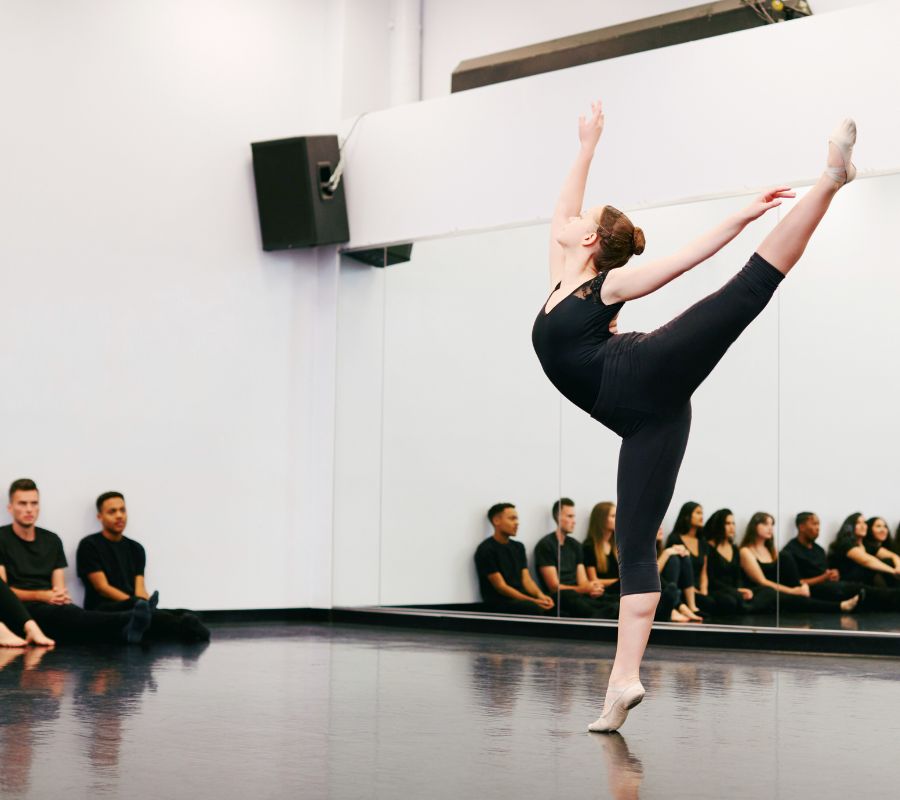Listen to the audio version of this blog on Youtube by clicking here!
Mitch Hedberg had a joke about being a stand up comedian in Hollywood and everyone expecting him to do things related to comedy, like acting and writing scripts. He compared it to being a cook who worked his “ass off to become a good cook” and being asked “alright, you’re a cook. Can you farm?”
As a member of the performing arts community, I’ve often heard fellow performers express their desires to learn from other performers- ones who are at the top of their game, believing that if they can do something well, they can teach anyone else to do it like them. The problem is that performing and teaching are two completely different skills.
I learned this lesson the hard way when I was in college, and I attended some workshops at a vintage dance camp. A couple of the teachers that I was the most excited about were the current national champions of their style of partner dancing. I was a poor student at the time, and the workshops were a la carte, so I had to pay for each one individually. The workshop with the superstar couple was less than I bargained for. Although the couple was able to demonstrate the steps easily, they couldn’t explain what they were doing. They had a particular way of using the music that made their dance look more authentic and interesting, and the only explanation or description they could give was that they were doing the traditional version rather than the ballroom version. This make the workshop attendees confused and angry. The couple didn’t know how to count when they danced, kind of like a music virtuoso who plays by ear but cannot read music. The result is that these teachers spent the entire class time standing around, struggling to explain and answer questions about the most basic of the basic steps, while the students grumbled and grew increasingly frustrated. I still get angry thinking about it, having wasted my money and not having learned anything from them other than the basic step, which I could have learned just by watching them dance on a video.
When I studied improv in LA, my fellow improvisers would sign up for the classes taught by the best performers. Some of them were fantastic teachers, but others spent most of the time in class giving students feedback after their scenes, which was no more than telling them the funny things they would have done instead, which could only apply to that particular scene, which would never happen again because- well, it’s improv. A great improv teacher teaches the basics, and helps students understand when and why to break the rules, and gives advice that they can use in many situations. A great improv performer knows the basics, but also doesn’t have a lot of inhibitions, either because of their many hours of stage time, confidence given to them by great teachers, or even just because of their upbringing. They may also possess skills in things like vocal work, from other experiences, like singing or playing tabletop RPGs, or physical comedy skills from watching and mimicking clowns or physical comics, or even from having experience in dance or martial arts.
Performers in other art forms may achieve greatness in a number of ways. Some become great because of natural talent, while others become skilled from many years of practice. They may have had fantastic teachers themselves, or they may be self-taught and have failed so much that they have learned what not to do. “Survivorship bias” makes us believe that the reason a person is successful is because they did everything right, when it could have more to do with luck, privilege, or just not doing as many things wrong. They may not be aware of what caused their success, whereas someone who didn’t become a successful performer might have learned what not to do enough times that they finally gave up on performing. There could be some teachable moments in that person’s experience that shouldn’t be discounted.
Performing and teaching each require their own sets of skills. Sure, they can help each other, and one must know how to perform a skill in order to teach it. There are even people who are great at both, but those who can- do, and those who can teach- teach.
Visit my website at becksvoice.com!
Follow me on social media!
https://www.linkedin.com/in/rebecca-h-lee-audiobook-narrator
https://www.youtube.com/@RebeccaHLee
https://www.instagram.com/beckcentric
https://www.facebook.com/beckcentric
https://www.tiktok.com/@beckcentric



